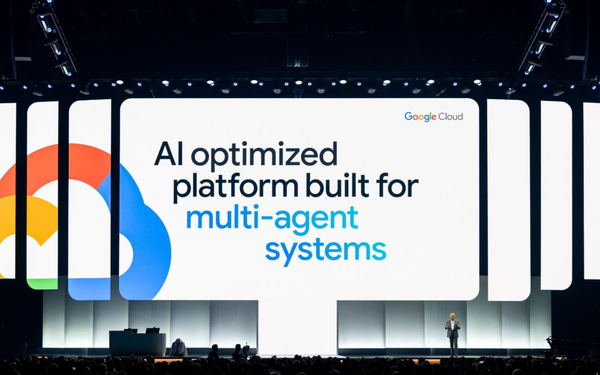
Safe Superintelligence (SSI), cofounded by former Open AI scientist Ilya
Sutskever, has become the latest AI startup to gain backing from Google and Nvidia. SSI's value is now estimated at $32 billion in a round of funding led by venture capital firm Greenoaks.
This deal might not have happened if earlier this year the Justice Department did not drop a proposal to force Google to sell its investments in artificial intelligence (AI)
companies, including OpenAI competitor Anthropic, that it claims boosts competition in online search.
I asked Google AI Mode to define “superintelligence” and it came back to me as
a hypothetical form of AI that surpasses human intelligence in all aspects, including problem-solving, creativity, and general wisdom.
This intelligence surpasses human intelligence.
Superintelligence will become the basis for agent-to-agent communications because it will have the ability to make decisions without human intervention.
advertisement
advertisement
Grok adds that superintelligence is a
concept often discussed in the context of AI and futurism, particularly by thinkers like Nick Bostrom and Eliezer Yudkowsky.
Google holds a minority stake in Anthropic , although the
DOJ and a coalition of 38 state attorneys general still seek a court order requiring Google to sell its Chrome browser. Losing the investment would have handed a competitive advantage
to Microsoft, OpenAI and others.
Google has its own AI models. It recently announced its cloud-computing arm and made a deal to sell SSI access to tensor processing units (TPUs), its in-house
AI chips.
Google last week released Agent2Agent protocol
(A2A), an open protocol intended for agents to communicate and collaborate with other agents. Imagine a string of agents that communicate with each other something similar to how nodes
communicate with nodes across the internet and networks to exchange data. This communication will share multimodal information without sharing memory and resources.
The A2A protocol helps
enterprises support multi-agent ecosystems because this is the future of advertising.
More than 50 partners, including Accenture, Box, Deloitte, Salesforce, SAP, ServiceNow, and
TCS are actively contributing to this protocol, representing a shared vision of multi-agent systems.
The first to introduce this technology, Anthropic called it Model Context Protocol (MCP), which is meant to connect
AI to data sources like databases or tools to do a variety of tasks.
Vaclav Vincalek, Fractional CTO, in a newsletter wrote that human language is "suitable to describe the beauty of the
world, and it lets our mind wander in various directions, but it is [too] ambiguous." He points to terms and conditions about what consumers can or cannot do with their software, using language that
he thinks must be precise.